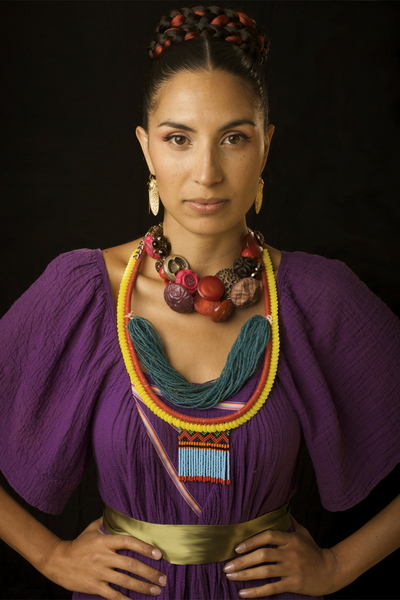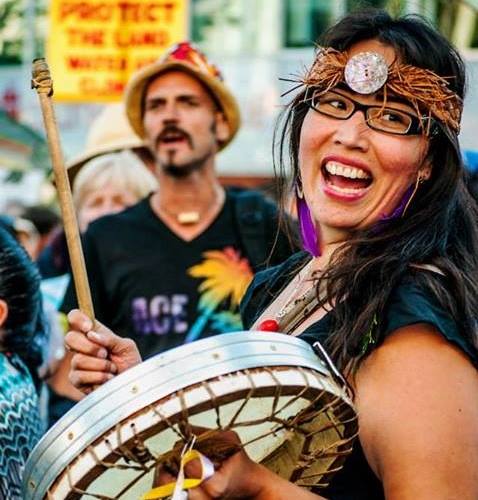Hey fierce listeners! Welcome to MsRepresent: Behind the Face, a Fierce Woman. I’m Charlene Sayo, your host for the next half an hour and every week, I have the honour to have lively conversations with unique, trailblazing women in the arts, sciences, literature, music, politics, activism, feminism and more.
Today’s episode is not only an exciting one, but a very special one because this is the last episode the month-long series, Women in Hip Hop. For the entire month of November, I’ve featured conversations with some of hip hop’s most provocative and ground-breaking artists: Kinnie Starr, Maya Jupiter and Asa Lianess. Tonight’s finale is all about the politically-charged, French-Chilean super-fierce, super-star MC, Ana Tijoux.
What makes this episode different than past episodes is, aside from my interview with Ana, I’ve included a portion of a Q and A that Ana did at a recent national conference in Los Angeles titled “Women on the Wave” organized by AF3IRM, a transnational feminist organization across the United States. And if you don’t know anything about AF3IRM, be sure to check af3irm.org as they are currently doing actions across the United States until December 10th in commemoration of the 16 Days of Activism Against Gender Violence.
For the next little bit, you’ll hear Ana sharing her thoughts on feminism, art for social change and her definition of garbage culture. I spoke with Ana in Los Angeles on the last day of AF3IRM’s “Women on the Wave” summit.
***Special Thanks to AF3IRM***
BIO
 Ana Tijoux was born in France to parents exiled from their native Chile by the military dictatorship of Augusto Pinochet. Ana returned to Santiago in 1993 and by the late 1990’s was well known throughout Latin America as MC of the hip hop group, Mazika. A solo artist since 2006, she has thrilled audiences internationally with her politically hard-hitting lyrics and signature flow, earning the title, “South America’s answer to Lauryn Hill” (The New York Times). This year she has travelled throughout the USA—performing at Austin City Limits and SXSW, among others, while making time for interviews on programs such as Democracy Now!—in support for her latest album, Vengo (2014).
Ana Tijoux was born in France to parents exiled from their native Chile by the military dictatorship of Augusto Pinochet. Ana returned to Santiago in 1993 and by the late 1990’s was well known throughout Latin America as MC of the hip hop group, Mazika. A solo artist since 2006, she has thrilled audiences internationally with her politically hard-hitting lyrics and signature flow, earning the title, “South America’s answer to Lauryn Hill” (The New York Times). This year she has travelled throughout the USA—performing at Austin City Limits and SXSW, among others, while making time for interviews on programs such as Democracy Now!—in support for her latest album, Vengo (2014).
Intro/Outro music: “Rainbow” by Emilie Simon. Remix from the original.
Additional music: “A tua choradeira é meio salário em lenços” by Stealing Orchestra & Rafael Dionísio. Remix from the original.












You must be logged in to post a comment.